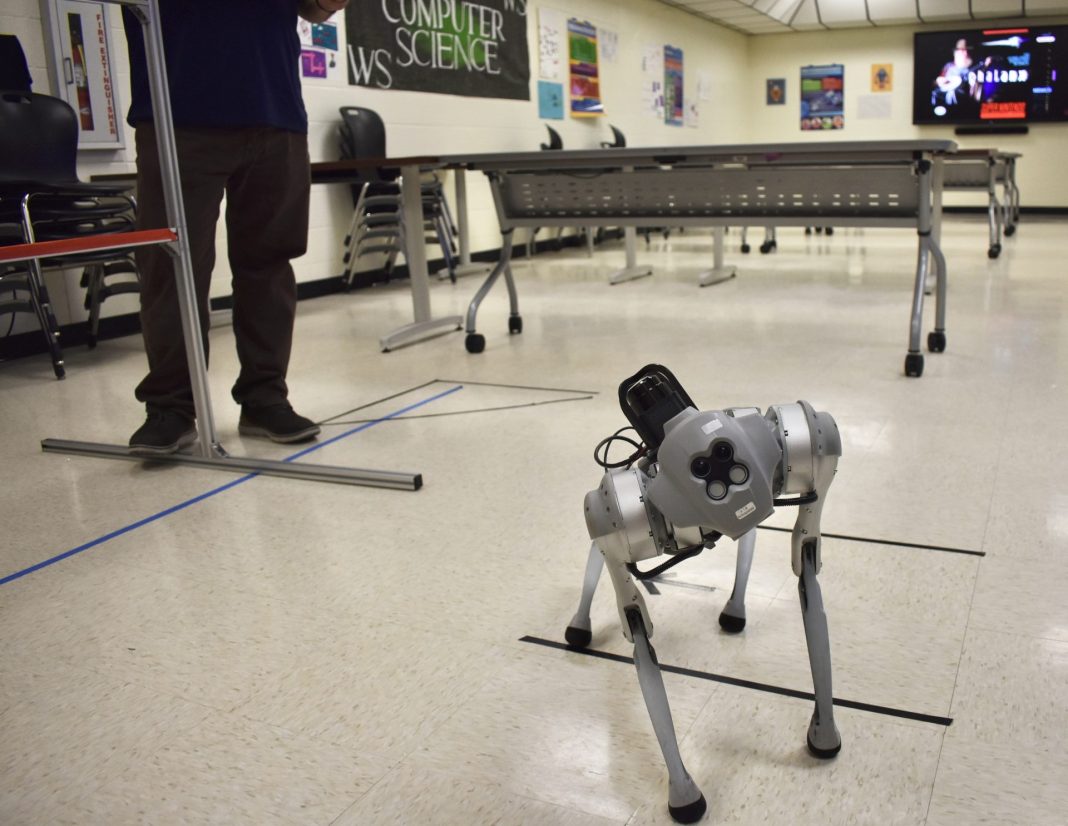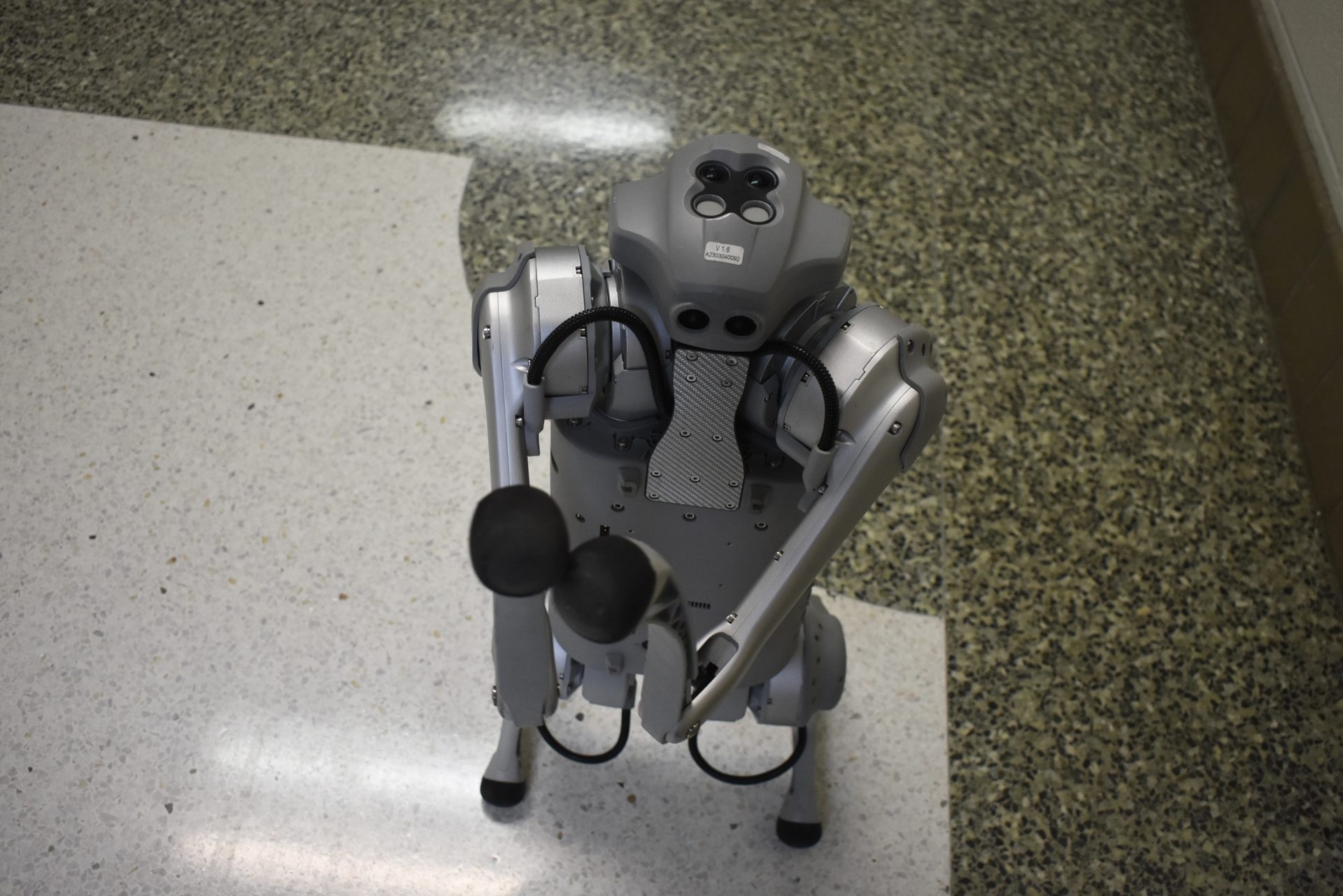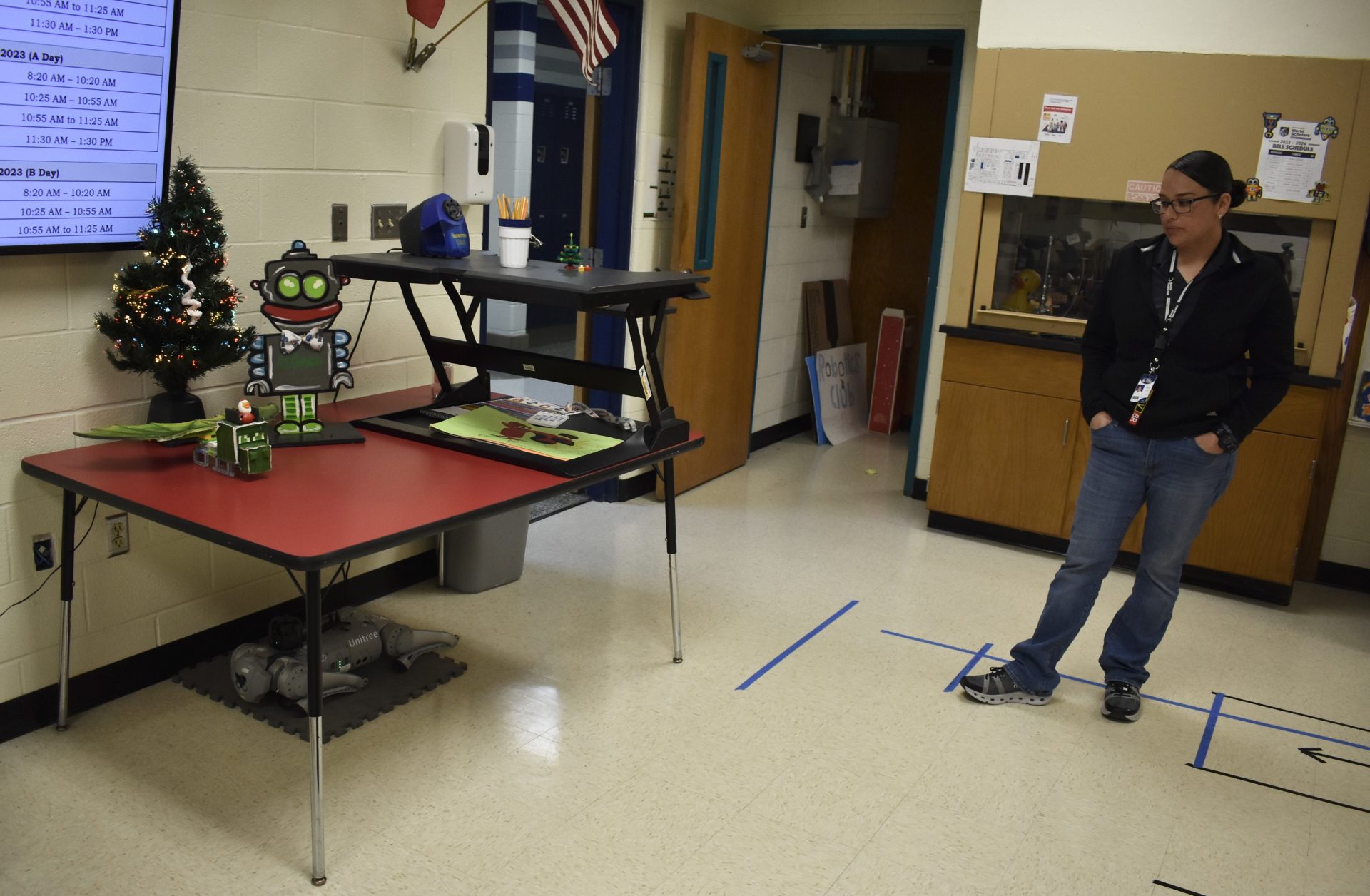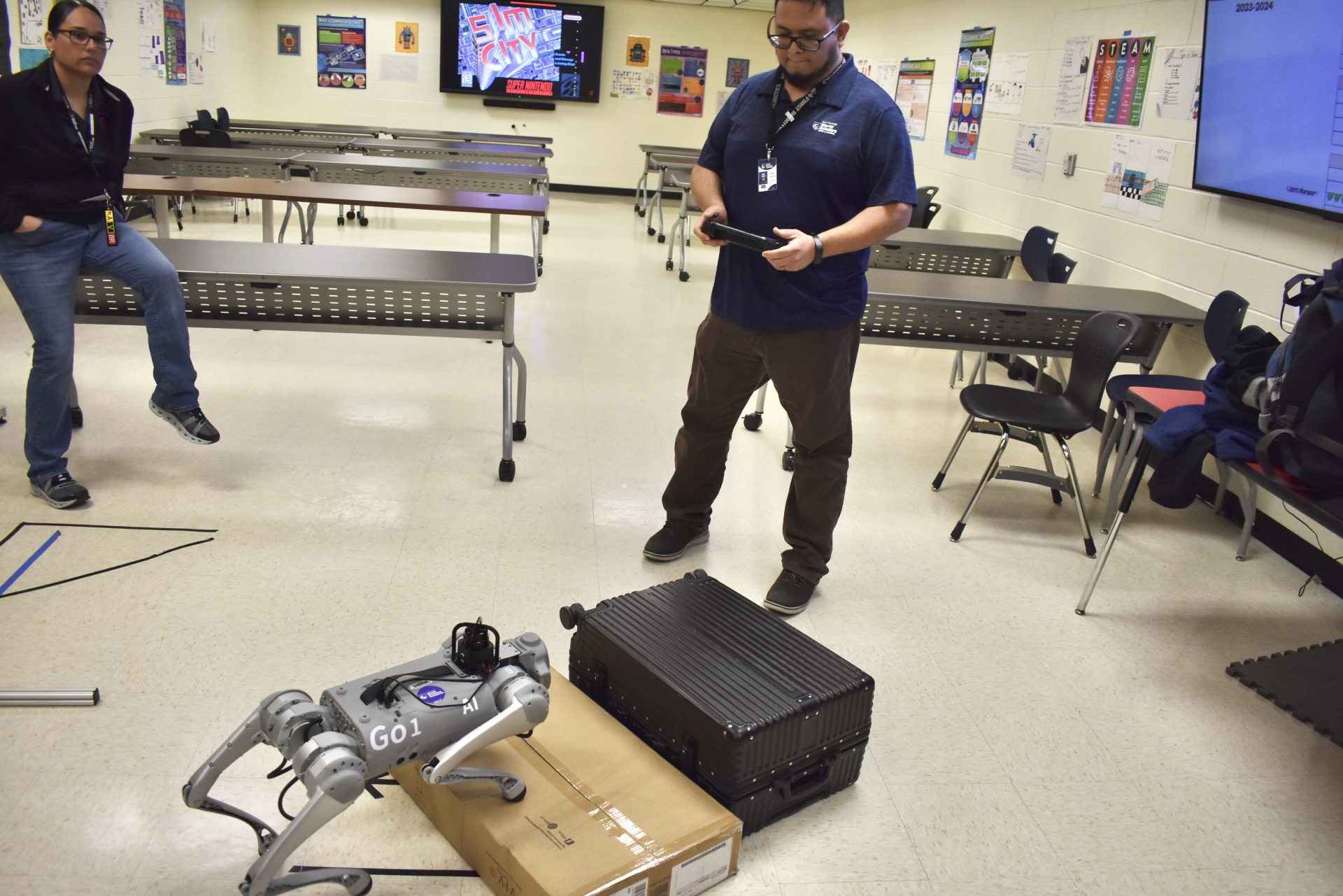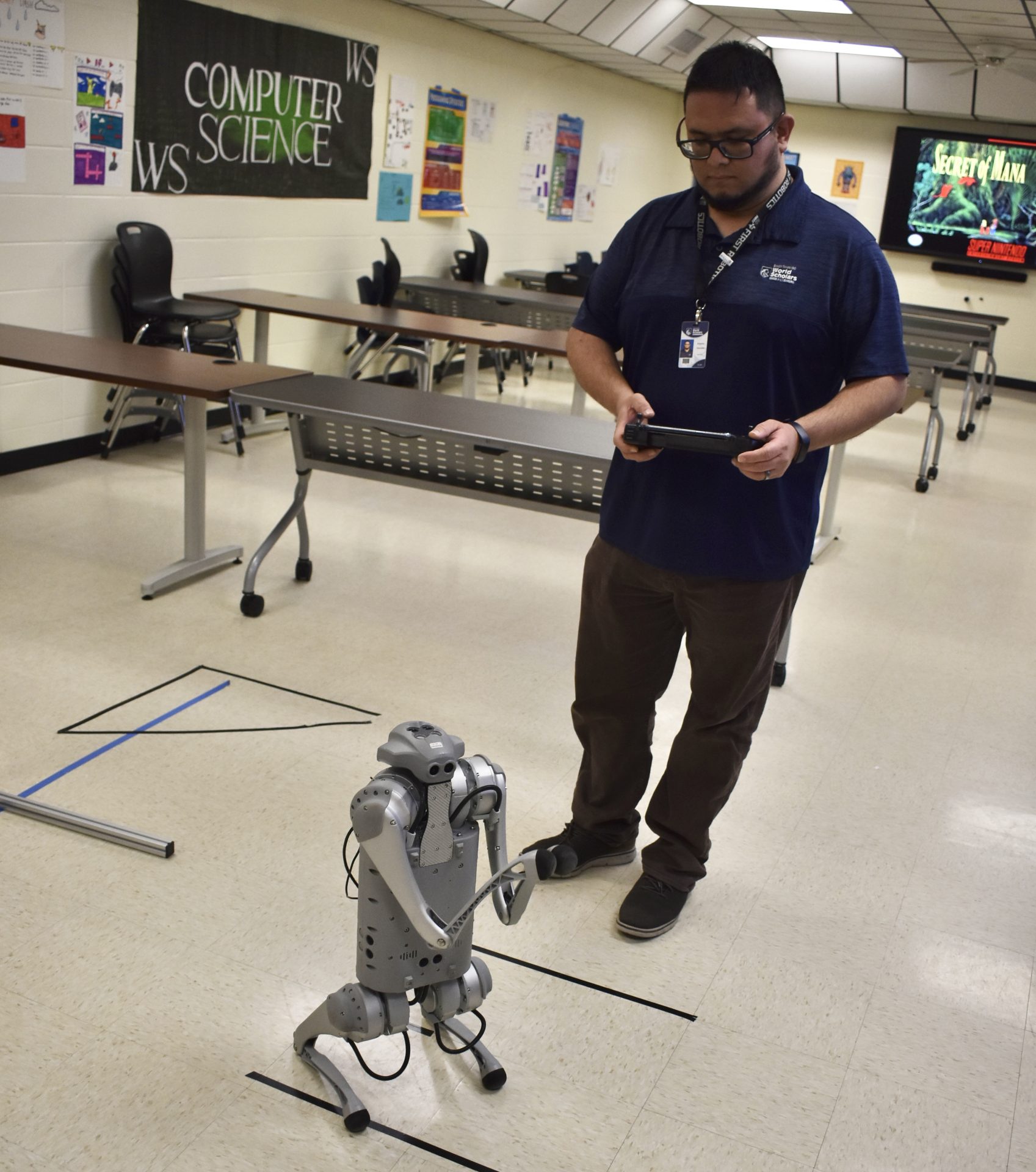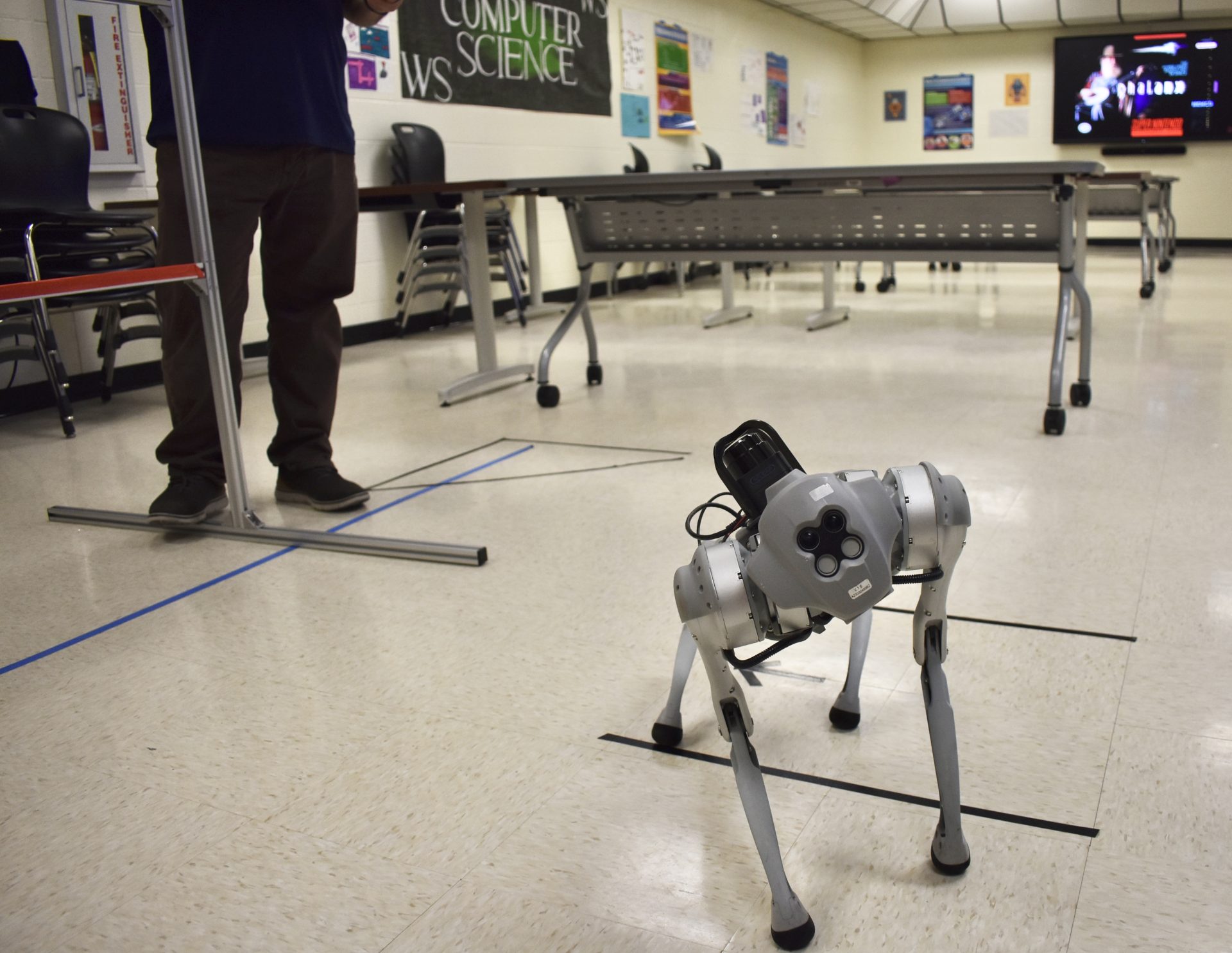|
Only have a minute? Listen instead
Getting your Trinity Audio player ready...
|
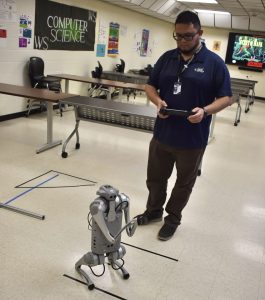
EDINBURG — Always drawing the center of attention wherever he goes, Gizmo, an AI robot dog, is helping students learn hands-on skills for the growing world of technology.
About the size, weight and cuteness of a beagle, Gizmo is a Unitree Go1 Pro AI Quadruped Robot Dog bought by South Texas ISD for the purpose of teaching programming as part of student computer science courses at Science Academy and World Scholars high schools.
STISD World Scholars is also using the robot dog in their law enforcement courses to show students how AI technology and robotics are being introduced in police departments across the country such as in Los Angeles and New York City.
Ernesto Gonzalez, Computer Science teacher at World Scholars, said students voted on the name and that Gizmo has become a favorite around the high school, walking up and down the hallways as it introduces itself to students in other classrooms.
Gonzalez said the high school received the robot dog in October and the district also paid for an educational curriculum that comes with Gizmo.
Gizmo cost $32,000 for the district, according to STISD Administrator for Public Relations & Marketing Amanda Odom and came from the Yield Giving Foundation established by Mackenzie Scott.
The robot dog has advanced AI that can accompany people on walks, carry and bring items, climb stairs and even stays balanced on his bionic four legs when pushed. Gonzalez said he showcased Gizmo’s different modes at a pep rally and the students booed when he tried to push the robotic dog down.
Operated by a remote controller, it is similar to a Nintendo Switch with joysticks to maneuver, sets of buttons to give certain commands, and to be able to see what Gizmo is looking at and scanning.
This semester, students have been mostly studying Gizmo and how he works, his capabilities and what could be possible for the robot dog through additional programming.
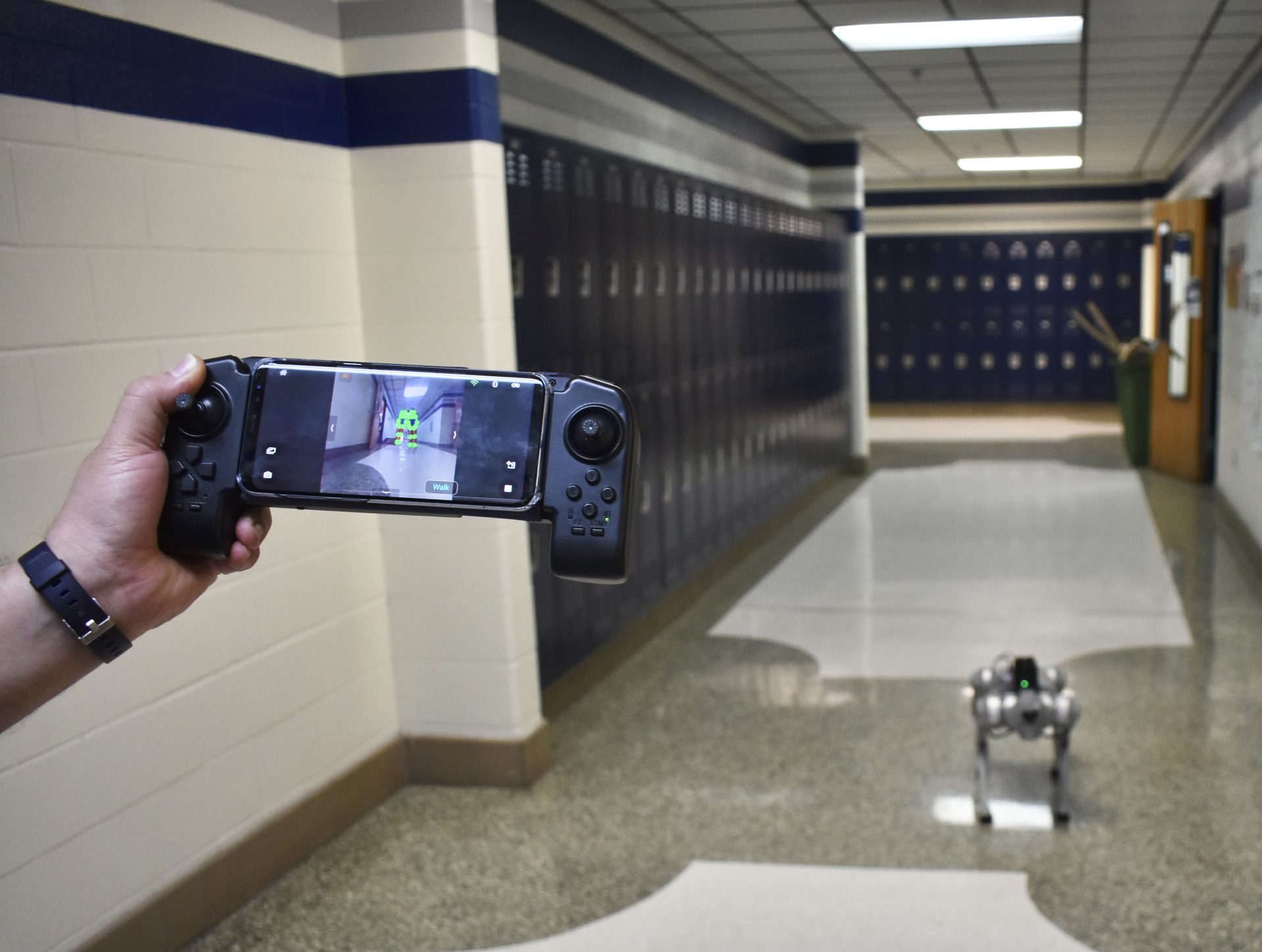
“We ran it across the parking lot to see how far it would go, to see how fast they would go,” he said. “We were using the curriculum that it came with to do those kinds of studies on it. So we made the students measure distance over time and they were calculating speed and then force and all that stuff.”
Gizmo has cameras on its front, sides, back, top and bottom. Having cameras all around his little robotic dog body, anyone operating it can be able to view exactly what Gizmo sees.
Gonzalez also mentioned a mode where Gizmo scans out a detailed map of his surroundings and can recognize humans through his cameras. That information is relayed back to the remote controller to view.
Gonzalez said next semester students will start to implement more high-level coding to Gizmo which will program the robot dog different moves and modes.
“I hope we can build from it really,” he said. “All of this is like a stepping stone with anything they can do with a computer.”
World Scholars Law Enforcement teacher Denise Davila is also finding a way to implement Gizmo in her classes.
Gizmo will assist students in building clearing and how law enforcement are using AI and robotics in real life situations.
“So what we’re going to incorporate is using Gizmo to send him into the unknown and … scoping it out so that way students can formulate a plan and know the layout of a room,” Davila said.
She said students are enjoying seeing the end results of their coding being implemented into Gizmo and that it sets them up for the future of the world of technology that is increasingly using AI and robotics.
“They’re like super duper ecstatic about Gizmo because they’ll walk him and they’ll be, say like, ‘Oh, look, I had him do this. I coded him to do this’ … and coding is not easy, so being able to do that and seeing it being applied, they get a big kick from that.”
Gonzalez said the students’ curiosity for Gizmo and programming has been a special thing to see and will translate when they step into the future workforce.

